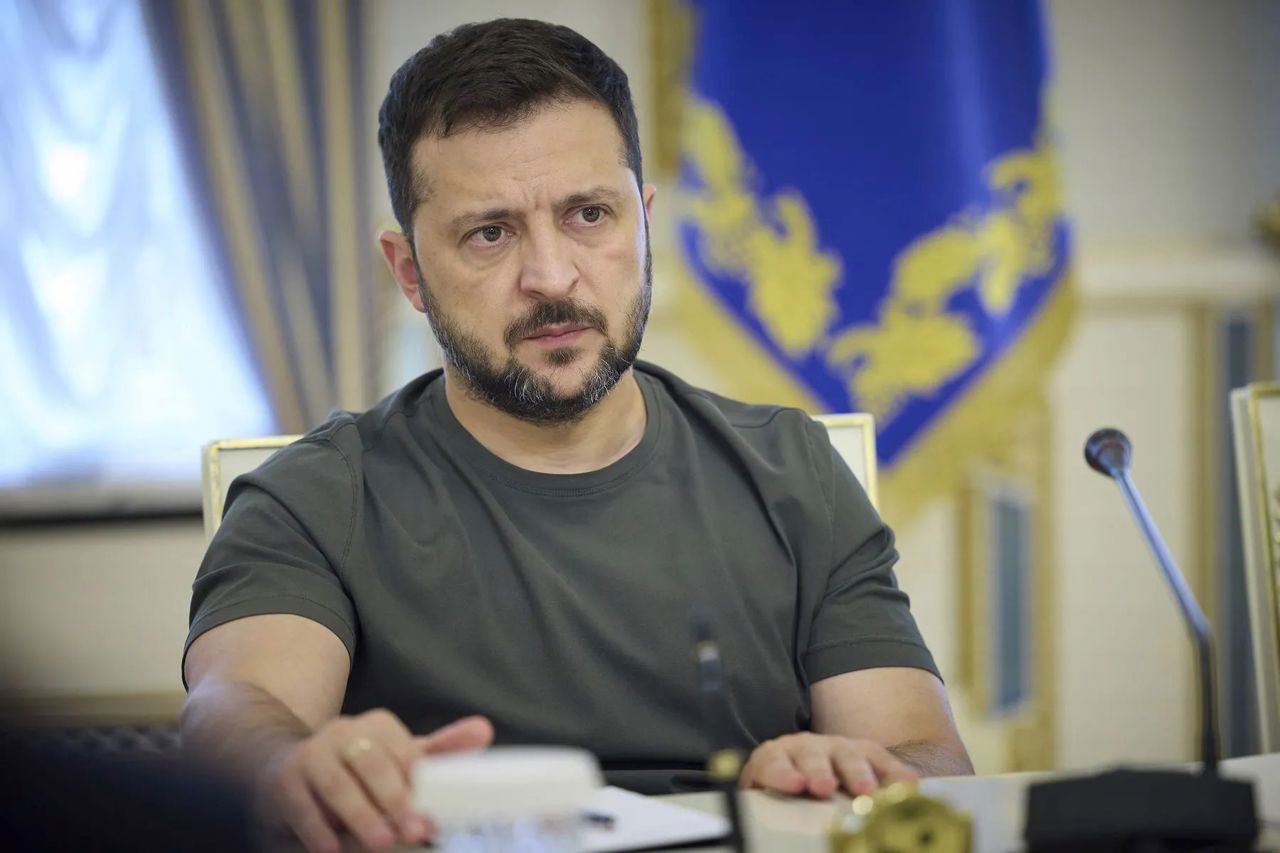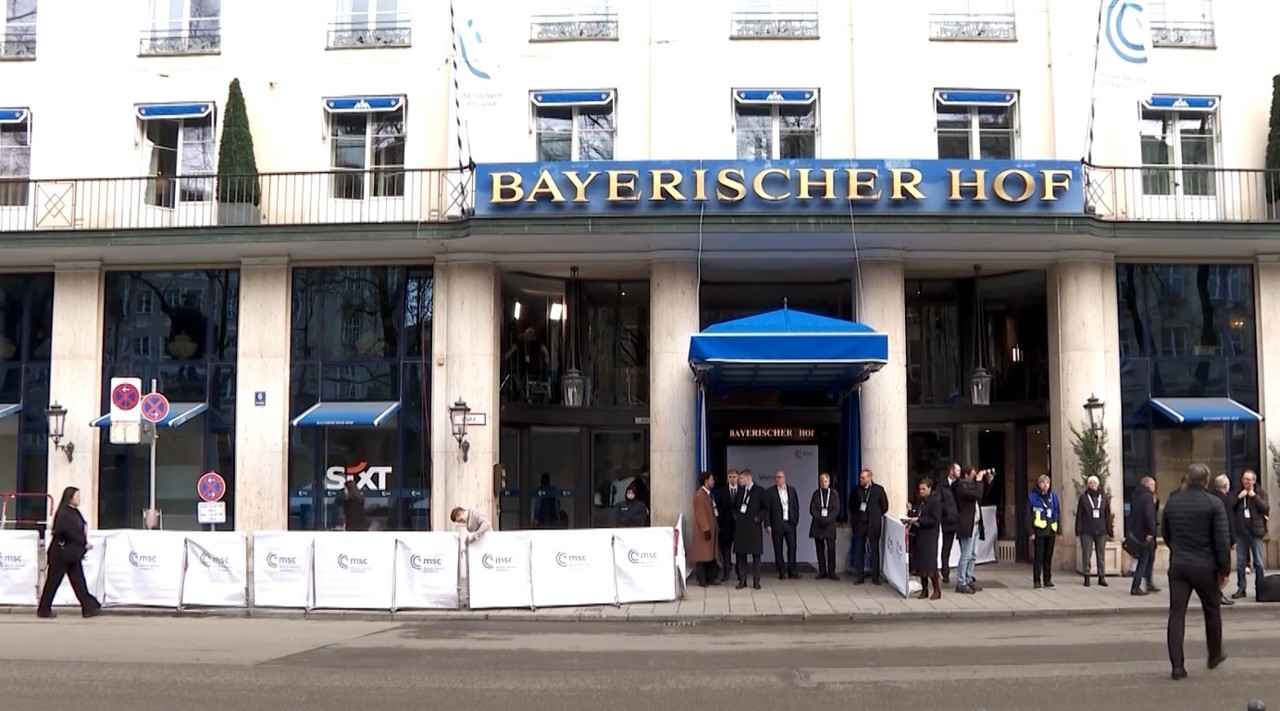Zelensky rejects U.S. mineral deal over Ukraine’s EU path

President Volodymyr Zelensky asserted that Ukraine would reject any agreement on mineral resource rights that might endanger its EU integration.
Furthermore, the Kyiv leader stressed that it was premature to comment on Washington’s significantly expanded proposal, according to Reuters.
A summary of the proposal indicates that the U.S. is demanding Ukraine allocate all revenue from its natural resources to Washington for a prolonged period.
Moreover, Zelensky specified that Ukraine does not acknowledge past U.S. financial assistance as a loan.
During a press conference, Zelensky explained that Ukraine’s legal advisors needed to analyze the proposal before he could provide a more detailed response. The summary suggests that the U.S. is seeking long-term control over Ukraine’s resource revenues.
Zelensky also emphasized that Ukraine remains open to negotiating a mutually beneficial agreement with the U.S. on mineral resources but would not accept any deal that compromises its economic stability. However, he noted that Washington continuously revises its negotiation terms, making the discussions increasingly complex.
According to sources close to the negotiations, the latest version of the agreement omits any security guarantees for Ukraine and stipulates that all revenue from natural resources—both public and private—must be funneled into a joint investment fund.
The Reuters-reviewed summary indicates that the U.S. would retain the right of first purchase over Ukraine’s extracted resources and recover all financial aid provided since 2022, with an annual interest rate of 4%, before Ukraine could access any profits from the fund.
Ukraine’s 2024 budget anticipates $1.2 billion in revenue from mineral extraction taxes, $1.8 billion from dividends and payments by state-owned enterprises, and $19.4 billion from company profits, according to the Ministry of Finance.
The joint investment fund would be managed by the U.S. International Development Finance Corporation (DFC) and overseen by a five-member board, with three members appointed by the U.S. and two by Ukraine. The funds would be converted into foreign currency and transferred abroad.
A previous version of the agreement, which Ukraine had tentatively accepted before Zelensky’s visit to the White House last month, included more favorable terms for Kyiv. That version proposed a joint fund where Ukraine would contribute only 50% of state-generated resource revenues. Kyiv later clarified that this was merely a framework subject to further negotiations.
Zelensky’s visit to Washington on February 28 concluded with a tense meeting in the Oval Office, followed by several days during which the U.S. suspended military aid and intelligence sharing. Since then, the Ukrainian president has adopted a more cautious approach, repeatedly expressing gratitude for U.S. support.
Earlier this month, Ukraine accepted a U.S. proposal for a 30-day ceasefire, though Russia rejected it. Last week, both Ukraine and Russia agreed to suspend attacks on energy infrastructure and maritime targets. However, Moscow conditioned any maritime agreement on the relaxation of international sanctions.
U.S. Treasury Secretary Scott Bessent, who is leading the mineral agreement negotiations, told Fox News that Washington had presented Ukraine with a "finalized economic partnership document" and hoped to secure signatures "as early as next week."
Furthermore, the Kyiv leader stressed that it was premature to comment on Washington’s significantly expanded proposal, according to Reuters.
A summary of the proposal indicates that the U.S. is demanding Ukraine allocate all revenue from its natural resources to Washington for a prolonged period.
Moreover, Zelensky specified that Ukraine does not acknowledge past U.S. financial assistance as a loan.
During a press conference, Zelensky explained that Ukraine’s legal advisors needed to analyze the proposal before he could provide a more detailed response. The summary suggests that the U.S. is seeking long-term control over Ukraine’s resource revenues.
Zelensky also emphasized that Ukraine remains open to negotiating a mutually beneficial agreement with the U.S. on mineral resources but would not accept any deal that compromises its economic stability. However, he noted that Washington continuously revises its negotiation terms, making the discussions increasingly complex.
According to sources close to the negotiations, the latest version of the agreement omits any security guarantees for Ukraine and stipulates that all revenue from natural resources—both public and private—must be funneled into a joint investment fund.
The Reuters-reviewed summary indicates that the U.S. would retain the right of first purchase over Ukraine’s extracted resources and recover all financial aid provided since 2022, with an annual interest rate of 4%, before Ukraine could access any profits from the fund.
Ukraine’s 2024 budget anticipates $1.2 billion in revenue from mineral extraction taxes, $1.8 billion from dividends and payments by state-owned enterprises, and $19.4 billion from company profits, according to the Ministry of Finance.
The joint investment fund would be managed by the U.S. International Development Finance Corporation (DFC) and overseen by a five-member board, with three members appointed by the U.S. and two by Ukraine. The funds would be converted into foreign currency and transferred abroad.
A previous version of the agreement, which Ukraine had tentatively accepted before Zelensky’s visit to the White House last month, included more favorable terms for Kyiv. That version proposed a joint fund where Ukraine would contribute only 50% of state-generated resource revenues. Kyiv later clarified that this was merely a framework subject to further negotiations.
Zelensky’s visit to Washington on February 28 concluded with a tense meeting in the Oval Office, followed by several days during which the U.S. suspended military aid and intelligence sharing. Since then, the Ukrainian president has adopted a more cautious approach, repeatedly expressing gratitude for U.S. support.
Earlier this month, Ukraine accepted a U.S. proposal for a 30-day ceasefire, though Russia rejected it. Last week, both Ukraine and Russia agreed to suspend attacks on energy infrastructure and maritime targets. However, Moscow conditioned any maritime agreement on the relaxation of international sanctions.
U.S. Treasury Secretary Scott Bessent, who is leading the mineral agreement negotiations, told Fox News that Washington had presented Ukraine with a "finalized economic partnership document" and hoped to secure signatures "as early as next week."
Translation by Iurie Tataru






